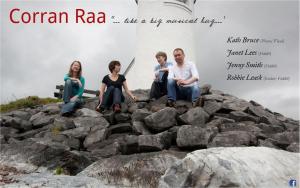This will be more of a Thought Dump than a blog.
The high topic in Scotland is of course Independence. Last week’s particular high spot was the ‘Yes’ extravaganza where all the great and the good who support Independence were on stage welcoming the future Yes vote at the Referendum in October 2014. Well that’s what it was billed as but if you read Lesley Riddoch’s column in today’s Scotsman it went somewhat flat – perhaps a more balanced assessment may be heard on her pod with Chris Smith – http://www.lesleyriddoch.com/2012/05/the-.html?utm_source=feedburner&utm_medium=email&utm_campaign=Feed%3A+LesleyRiddoch+%28Lesley+Riddoch%29
I also commend to the reader:
http://burdzeyeview.wordpress.com/2012/05/25/ten-other-good-reasons-to-vote-yes-to-independence/
Burdzeye puts forward ten points for Scottish Independence and how Scotland could be a much more egalitarian country given Independence. But as he kindly admits many of these are achievable already with the powers that the Scottish Government has through devolution. Only taxation looks to be the one not available with taxation still under the control of the Westminster government. Once the Scotland Bill comes into force then the Holyrood government will have some degree of control over the population’s taxation. As yet the SNP has not come forward with its fiscal policy for taxation and this could be that if it did some of its Great and Good supports might think twice. So why has not the Scottish SNP Government moved more strongly on its egalitarian agenda and what likelihood of it doing so after Independence?
Topic Two
Michael Sandel has published a new book ‘What Money Can’t buy’. Sandel is a political philosopher at Harvard and has a great series of lectures on the web that he gives to his first year Graduates. The book is written for the US market – see recent review in the Guardian http://www.guardian.co.uk/books/2012/may/27/michael-sandel-reason-values-bodies
A quote from the review:
Putting a price on a flat-screen TV or a toaster is, he says, quite sensible. “But how to value pregnancy, procreation, our bodies, human dignity, the value and meaning of teaching and learning – we do need to reason about the value of goods. The markets give us no framework for having that conversation. And we’re tempted to avoid that conversation, because we know we will disagree about how to value bodies, or pregnancy, or sex, or education, or military service; we know we will disagree. So letting markets decide seems to be a non-judgmental, neutral way. And that’s the deepest part of the allure; that it seems to provide a value-neutral, non-judgmental way of determining the value of all goods. But the folly of that promise is – though it may be true enough for toasters and flat-screen televisions – it’s not true for kidneys.”
Very much in the vein of ‘We know the price of everything but the value of nothing’
Sandel’s thesis is the Economics has cast itself as a value-neutral science rather than it should probably be seen – as it once was – as a branch of moral and political philosophy.”
Relevant to Scottish Government – I think so – economics dominates the Westminster Parliament at present – separation from it could be loosening the dominance of ‘market forces’ but only if the Scottish Government takes up the challenge.
Topic Three
Timothy Garten Ash in last week’s Guardian considers the future of Greece and its economic woes.
http://www.guardian.co.uk/commentisfree/2012/may/16/greek-people-stark-choice-in-out
He finishes his article:
‘The future of the eurozone now depends on the choice to be made in Greece, the future of Europe on that of the eurozone, and that of the west to a significant degree on that of Europe – so, with slight hyperbole, we can say that the future of the west now depends on the birthplace of the west. Is it too much to hope that, in such a moment, Greek politics will rediscover some of the grandeur and simplicity that was present in Athens at the creation of democracy? Probably it is.’
OK, Scotland has never been a democracy as ancient Greece was – Edinburgh even failed to finish its Capital Hill! – but Alex Salmond in his Hugo Young lecture referred to the Attlee post war government and its aim to be the ‘New Jerusalem’. The young Greeks are looking for self-determination to free themselves from Europe and its economic straightjacket as are Scotland from the UK as they preceive it.
So it’s back to Economics as moral philosophy rather than a value neural science.
And I shall be back again and again over the next 1000 days
